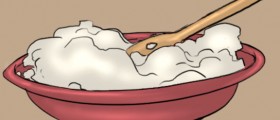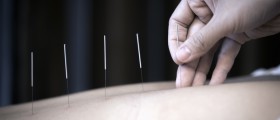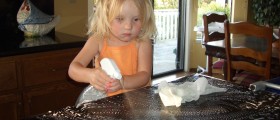
Anorexia is one of the more serious problems because a rabbit’s digestive system has to be constantly processing food. A rabbit might be able to survive without it for a day or two, but not more. The first thing to try is offer the rabbit straw or hay in abundance, in case his regular food is what’s keeping the rabbit from eating. If that’s not the case, one should give the rabbit some fresh herbs such as parsley or spinach, fresh raspberry or blackberry leaves, vegetable baby food which might have to be inserted through a syringe, or just plain yogurt. However, the fruit should really be the last resort since it has too much sugar for a rabbit and can also cause complications.
If anorexia is the serious, dehydration is even worse for a rabbit. The treatment has to be provided through a syringe for this one, and one should make sure to insert the liquid through the mouth to the side, and not right into the throat. The substances to give to the rabbit are plain water or the so-called pedialyte, a type of oral rehydration therapy. A clear indicator of dehydration is true diarrhea. Another important thing to remember is to give the rabbit the right amount of fluids. That means that if a rabbit needs an ounce of water per pound a day, a dehydrated rabbit will need a greater amount to make up for the lost liquids.
Another issue that often occurs to rabbits is excessive cecal matter. This means that the rabbit’s waste isn’t normal, but that it consists of soft bunches of waste of unpleasant smell. In case it isn’t clear, the waste should be in the form of small almost odorless round balls. This is not any kind of disease itself, but rather an indication that the rabbit will soon get sick, most likely due to stress or improper diet. The thing to do is replace the rabbit’s regular food with straw or hay until its cecal matter is back to normal. When that happens, the transition to normal food should be monitored for any sign of repeated cecal matter. The rabbit should not receive more food than truly required.
All these conditions are not difficult to identify and take care of, however, it is always highly recommended to visit the veterinarian to make sure everything is handled the right way.



_f_280x120.jpg)



_f_280x120.jpg)









Your thoughts on this
Loading...